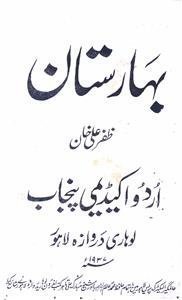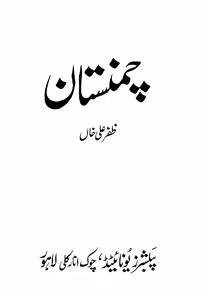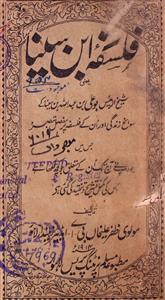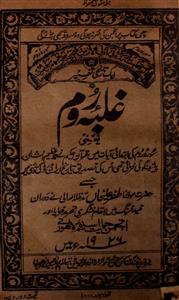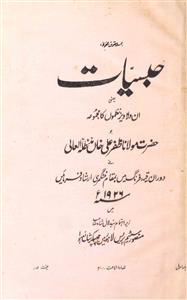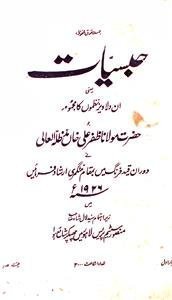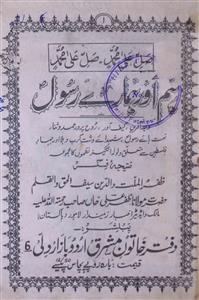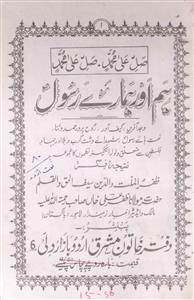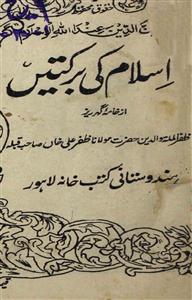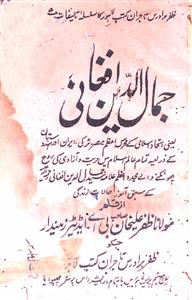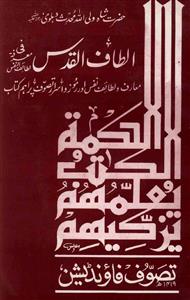 For any query/comment related to this ebook, please contact us at haidar.ali@rekhta.org
For any query/comment related to this ebook, please contact us at haidar.ali@rekhta.org
About The Book
"بہارستان" ظفر علی خان کےاشعار کا خوبصورت گلدستہ ہے، جس میں زیادہ تر مذہبی نظمیں،حمد و نعت ہے۔ اس میں غزلوں کو بھی عنوان دیا گیا ہے۔ ہر عنوان کے تحت شاعر اشعار کو نظم کرتا ہے۔ شاعر نے عناوین کےتحت اشعار کو مرتب کیا ہے اور اس کے ضمن میں ایک دو یا اس سے زاید غزلیں نظم کی ہیں۔ پورا کلام مذہبی اشعار پر مبنی ہے اور اس میں جا بجا عناوین کو جگہ دی گئی ہے۔ شاعر نے اپنے اشعار پر کچھ اس طرح عناوین کو چسپا کیا ہے۔ آوازہ حق، دعا، مقام حیرت، لیس کمثلہ شی، وسعت آرزو، میدان عرفات میں مناجات، کلام اللہ، اشعار نعت، فریاد بحضور سرور کونین، رحمۃ للعالمین، جشن میلاد نبی وغیرہ۔ اس لئے مذہبیات کی رو سے مطالعہ کے شوقین حضرات کو اس طرٖ ف ضرور متوجہ ہونا چاہئے۔
About The Author
Zafar Ali Khan was a poet, an editor, a political activist, and also a freedom fighter. Born in a small town called Koatmarta in the district of Sialkot in 1873, he received his early education in Karamabad but later joined Anglo Mohammedan College, Aligarh.
Zafar Ali Khan worked as the editor of the then famous daily called Zameendar. This newspaper had made a singular contribution in those days towards creating an acute consciousness regarding political, social, and cultural issues of the times. His political stance with respect to non-violence differed from that of Mahatama Gandhi. Clearly opposed to Gandhis’s policy of non-violence, he believed in direct confrontation with the British. An ardent supporter of Khilafat Movement, he also had to serve a term of five years in prison for his role in the freedom movement.
Poetry was a mode of socio-political resistance for Zafar Ali Khan. He engaged with the issues that impacted his times. Most of what he wrote represents contemporary history in literary terms. He died on November 27, 1956 in Lahore. His collections of poems include Baharistan, Nigaristan, and Chamanistan.
 For any query/comment related to this ebook, please contact us at haidar.ali@rekhta.org
For any query/comment related to this ebook, please contact us at haidar.ali@rekhta.org
